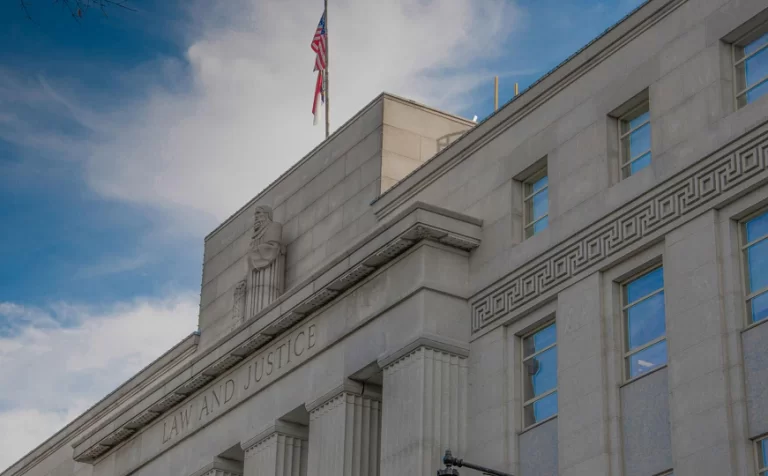A study by the University College London showed that serious Guillain-Barré syndrome (GBS), which can result in temporary or permanent paralysis, is a “small but significant” risk associated with AstraZeneca/Oxford University’s AZD1222 (or “Vaxzevria”) vaccine. Of the 996 cases of GBS that were recorded in the United Kingdoms’ National Immunisation Management System database between January and October 2021, 198 cases (20 percent) occurred within six weeks of COVID-19 vaccination. The vast majority of cases (176) occurred after the first dose of the AstraZeneca vaccine, while 21 cases occurred after Pfizer/BioNTech’s BNT162b2 (“Comirnaty”) vaccine and one after the Moderna/NIAID’s mRNA-1273 (“Spikevax”) vaccine.1
While there were no excess cases of GBS associated with messenger RNA (mRNA) vaccines in general, researchers saw 5.8 excess cases of GBS per million doses of AstraZeneca’s COVID-19 vaccine, which resulted in approximately 98-140 cases of the debilitating illness.2 However, the authors noted that similar increases in GBS rates have been seen with other mass vaccination campaigns.3
GBS: The Immune System Attacks the Nervous System
GBS is a rare neurological disorder that occurs when an infection or other type of immune stimulation (like vaccination) provokes an abnormal autoimmune response that attacks the peripheral nerves and their spinal roots.4 Cases may be mild with the patient experiencing brief weakness and then mild to severe paralysis that, at its worst, can include the inability to breathe without mechanical assistance. Most patients eventually recover from GBS but may continue to experience weakness.5 In severe cases, however, there is permanent neurological damage and partial or full body paralysis requiring the use of a ventilator.6
Lead author of the study, Professor Michael Lunn, said that he believes it is unlikely that the spike protein in the COVID vaccine is the cause of GBS. He said that the SARS-CoV-2 infection itself does not present any increased risk of GBS (although there have been case reports in the medical literature of GBS following SARS-CoV-2 infections7 and that it is likely that the increase in the number of GBS cases is the result of the viral vector that transports the nucleic acid in, for example, the Astra Zeneca adenovirus vectored COVID vaccine.8
Lunn speculated…
It may be that a non-specific immune activation in susceptible individuals occurs, but if that were the case similar risks might apply to all vaccine types. It is therefore logical to suggest that the simian adenovirus vector, often used to develop vaccines, including AstraZeneca’s, may account for the increased risk.
A study conducted in the U.S. in 2022 showed that the background rate of GBS is 1-2 cases per 1000,000 people and that it was increased to as much as 32.4 per 100,000 people within three weeks of receiving Johnson & Johnson/Janssen’s Ad26.COV2.S COVID vaccine, which is also an adenovirus vectored vaccine like AstraZeneca’s AZD1222.9
An AstraZeneca spokesperson countered:
Vaccination of any kind is a known risk factor for GBS” and “the small number of GBS cases [following the AstraZeneca vaccine] appears similar to increases previously seen in other mass vaccination campaigns.10
Global Studies Show Increased Risk for GBS with AstraZeneca’s COVID Vaccine
A study conducted in the U.S. looked at a case of GBS with atypical onset following vaccination with AZD1222. The subject, a 62-year-old man, presented to the Emergency Department with visual discomfort 10 days after vaccination with AZD1222. By the fourth week, the patient became bedridden. The study authors speculate that the onset of GBS after vaccination involved an antibody cross-reaction. Because there is a known general association between vaccination and GBS, the authors suggested that an increase in GBS rates could be due to the unprecedented COVID vaccine push.11
A study in Taiwan looking at hospital records, along with a systemic review of the literature, revealed that COVID vaccination most likely causes GBS within two weeks of vaccination. The Taiwan study also stated that SARS-CoV-2 infection can cause GBS.12
The study looked at 18,269 healthcare workers at 9 branches of a Taiwan hospital who received AZD1222 between Mar. 22-31, 2021 and followed them for 30 days. The study also summarized published cases of GBS on PubMed and Embase through Aug. 17, 2021. Researchers identified one case of GBS among the health care workers after the first dose of AZD1222 and 38 cases of GBS associated with COVID vaccines in the medical literature.
The majority of GBS cases occurred in people who received AZD1222 (25 out of 39 cases) followed by BNT162b2 (12 out of 39 cases), with Ad26.COV2.S and Sinovac’s CoronaVac vaccines accounting for 1 case each. The rate of GBS after COVID-19 vaccination ranged from 1.8 to 53.2 cases per 1 million doses given. It took an average of 11.3 days for vaccine recipients to begin having symptoms of GBS.13
In Australia, the connection between the AZD1222 and GBS was first made in 2021 when six cases of GBS had been reported after COVID vaccinations, according to the Therapeutic Goods Administration (TGA). TGA officials did not immediately confirm that there was a link between the AstraZeneca COVID vaccine and GBS, claiming that six reports out of 1.8 million doses wasn’t cause for concern. GBS is more common in adults over the age of 50, which is the same age group being targeted for AZD1222 vaccinations.
The TGA did not conclude that there is a causal relationship between the vaccine and GBS. Instead, TGA officials referred to GBS as an “adverse event of special interest.”14
By August 2021, however, 89 cases of GBS were reported by the TGA, prompting the agency to add a warning to the vaccine product information page about an association between GBS and AZD1222.15
Vaccines Have Historically Been Linked to GBS
The connection between vaccination and GBS is not new. The mass campaign for the Swine Flu vaccine in 1976 was curtailed due to numerous reports of vaccine recipients becoming paralyzed from GBS.16 The National Swine Flu Immunization program was quickly enacted prior to the flu season after Congress passed emergency legislation to immediately create a vaccine to stop a Swine Flu epidemic predicted by public health officials.
By October 1976, even though there was no evidence that a Swine Flu epidemic was taking place, a mass vaccination program was launched with the experimental influenza vaccine.17 Unfortunately, the live virus vaccine caused GBS in more than 450 Swine Flu vaccine recipients. Meanwhile there was no evidence that there was a Swine Flu epidemic or that a new influenza virus was even circulating in America at all.18
the Swine Flu mass vaccination program came to a halt in mid-December 1976, but only after 45 million Americans (25 percent of the population) had received the risky vaccine.19
The 2009 H1N1 influenza vaccine was also found to carry an increased risk of developing GBS as a serious adverse reaction. According to researchers, 77 H1N1 vaccine recipients developed GBS, which is equivalent to 1.6 extra cases per 1 million persons vaccinated.20
Receiving the annual influenza vaccine has been linked to an increase in the risk of developing GBS. In 2013, the Federal Advisory Commission on Childhood Vaccines voted to add GBS to the Vaccine Injury Table as part of the federal Vaccine Injury Compensation Program and it was officially added to the table in 2017.21
The Gardasil vaccine has also been linked to an increase in GBS cases. According to PubMed, between 2006 and 2009, there were 69 reports of GBS after Gardasil vaccinations. The weekly reporting rate of GBS at 6.6 per 10,000,000 after vaccination is higher than the rate of GBS in the general population, which prompted the active surveillance of this adverse vaccine outcome.22
In 2021, the U.S. Food and Drug Administration (FDA) began requiring that a warning about the risk of GBS be included with the prescribing information for Shingrex, the shingles vaccine. The post marketing observation study showed that there is an increased risk of developing GBS within 42 days of receiving the shingles vaccine.23
If you would like to receive an e-mail notice of the most recent articles published in The Vaccine Reaction each week, click here.
Click here to view References:1 Zhang M. ‘Significant’ Cases of Neurological Disorder Associated with the AstraZeneca Vaccine. The Epoch Times May 31, 2022.
2 Ibid.
3 Researchers identify rise in neurological condition ‘Guillain-Barre syndrome’ following AstraZeneca vaccine. Business Insider India May 31, 2022.
4 Willison HJ, Jacobs BC, vanDoorn PA. Guillain-Barre syndrome. The Lancet 2016; 388(10045): 717-727.
5 Guillain-Barré Syndrome Fact Sheet. National Institute of Neurological Disorders and Stroke.
6 University College London. Researchers identify rise in Guillain-Barré syndrome following AstraZeneca vaccine. Medical Express May 30, 2022.
7 Mehta SK, Sunder A. Getting Paralyzed after COVID: Guillain-Barre syndrome. Journal of Family Medicine and Primary Care 2021; 10(7): 2706-2708.
8 Ibid.
9 Zhang M. ‘Significant’ Cases of Neurological Disorder Associated with the AstraZeneca Vaccine. The Epoch Times May 31, 2022.
10 Ibid.
11 Intoro A, Caputo F, Santoro C et al. Guillain-Barré syndrome after AstraZeneca COVID-19-vaccination: A causal or casual association? Clin Neurol Neurosurg September 2021; 208 106887.
12 Dhao S, Wang C, Chang K et al. Guillain-Barré Syndrome Associated with COVID-19 Vaccination. Emerging Infectious Diseases. Centers For Disease Control Vol. 27 No. 12-Dec. 2021.
13 Ibid.
14 Wainwright R. Could the AstraZeneca vaccine cause Guillain-Barré syndrome? We don’t know yet — but there’s minimal cause for concern. The Conversation May 14, 2021.
15 Woodley M. Guillain-Barre Syndrome warning for AstraZeneca. News GP Aug. 26, 2021.
16 National Vaccine Information Center. What is the History of Influenza Vaccine Use in America?
17 Eschner K. The Long Shadow of the 1976 Swine Flu Vaccine ‘Fiasco’. Smithsonian Magazine Feb. 6, 2017.
18 Kreston R. The Public Health Legacy of the 1976 Swine Flu Outbreak. Discover Sept. 30, 2013.
19 Klein C. When the US Government Tried to Fast-Track a Flu Vaccine. History.
20 Castillo M. H1N1 flu vaccine tied to higher risk of Guillain-Barre syndrome. CBS News Mar. 13, 2013.
21 The National Vaccine Information Center. Influenza Overview.
22 Souyah N, Michas-Martin Nasar A et al. Guillain-Barré syndrome after Gardasil vaccination: data from Vaccine Adverse Event Reporting System 2006-2009. PubMed Sept. 23, 2010.
23 FDA. FDA Requires a Warning about Guillain-Barré Syndrome (GBS) be Included in the Prescribing Information for Shingrix. Mar. 24, 2021.












